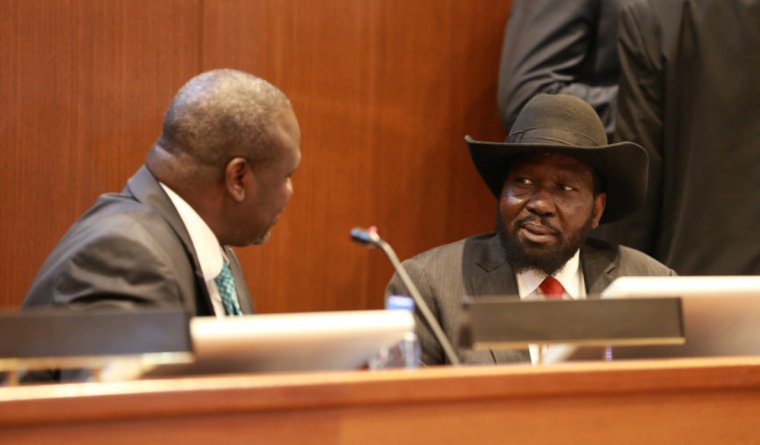Prioritize security arrangements to South Sudan’s gov’t formation: SPLM-IO

April 2, 2019 (JUBA) – Sudan People’s Liberation Movement In Opposition (SPLM-IO) said the priority should be given to the formation of the unified army before to set up the transition government, and called on the IGAD and Troika country to support this call.
The slow implementation of the revitalized peace agreement due to the lack of funds has mainly impacted key steps to be implemented during the six-month pre-interim period: formation of the unified national army and to and defining the tribal boundaries.
The South Sudanese government says it has no money to achieve this costly operation which implies troops disengagement, cantonment camps and training, but the Troika countries, U.S. U.K. and Norway say Juba should finance this process from oil money and then they will consider the remaining issues.
The government’s main peace partner, the SPLM-IO, recently began to complain about the seriousness of some circles in Juba saying they do not want to establish the small joint force they agreed to set up as the nucleus unified army.
Reached to comment on these developments, Manawa Peter Gatkuoth SPLM-IO Deputy Chairperson of the National Committee for Information and Public Relations confirmed the frustration of his movement about the implementation of the peace agreement.
“We believe that the implementation of the security arrangements is more important than the formation of the Revitalised Transitional Government of National Unity of the Republic of South Sudan (RTGoNU),” he said.
He pointed out that the 700-strong presidential protection force, which the parties agreed last March to deploy in the capital, is not yet established. Also, the parties agreed to ban the presence of armed militias in the capital but obviously there is no sign for its withdrawal from Juba, he added.
“Our idea is simple we want a national army under the leadership of President Salva Kiir tasked with the protection of the state and the constitution. But there are some circles that do not want to see this happening. They are hostile to the peace process,” he said.
In a report released on 13 March, International Crisis Group (ICG) said the SPLM-IO leader Riek Machar speaks about the need to implement the security arrangements and demarcate state boundaries first before to form the government.
“Some regional and Western officials doubt that Sudan would allow Machar to threaten the accord with such a move; others are sceptical that Machar himself would let the agreement stall,” added the think tank.
MACHAR RETURN
Manawa said Machar’s return to Juba is uncertain under the current conditions.
He added that the situation was not limited to the security arrangements but also to the lack of freedoms and the freedom of expression, human rights and basic services such as security, education, health service.
Further, he pointed out to the absence of the rule of law in South Sudan saying the state is managed with personal and tribal relations.
According to the media official, the peace implementation process requires freedoms and free media, but he regretted that there are parties that do not have “good intentions”.
“South Sudan is at a critical juncture that requiring all political leaders to raise the level of needed responsibility,” he said.
CALL FOR IGAD & TROIKA
The SPLM-IO official called on the Troika countries to support the implementation process and to follow it closely nowadays.
“The international community and the Troika consider the implementation of the peace agreement as an internal matter between the government and the signatory opposition parties. In fact, they must act to ensure its implementation”.
The Troika countries, also, have to financially support the implementation of the peace process to ensure its enforcement, added Manawa.
In the same vein, he said the IGAD countries now have turned their back on the implementation process as every country has its domestic issues.
“But they should not forget that the situation in South Sudan has a direct impact on their security and economic situation so they should move to ensure its implementation,” he stressed .
(ST)
